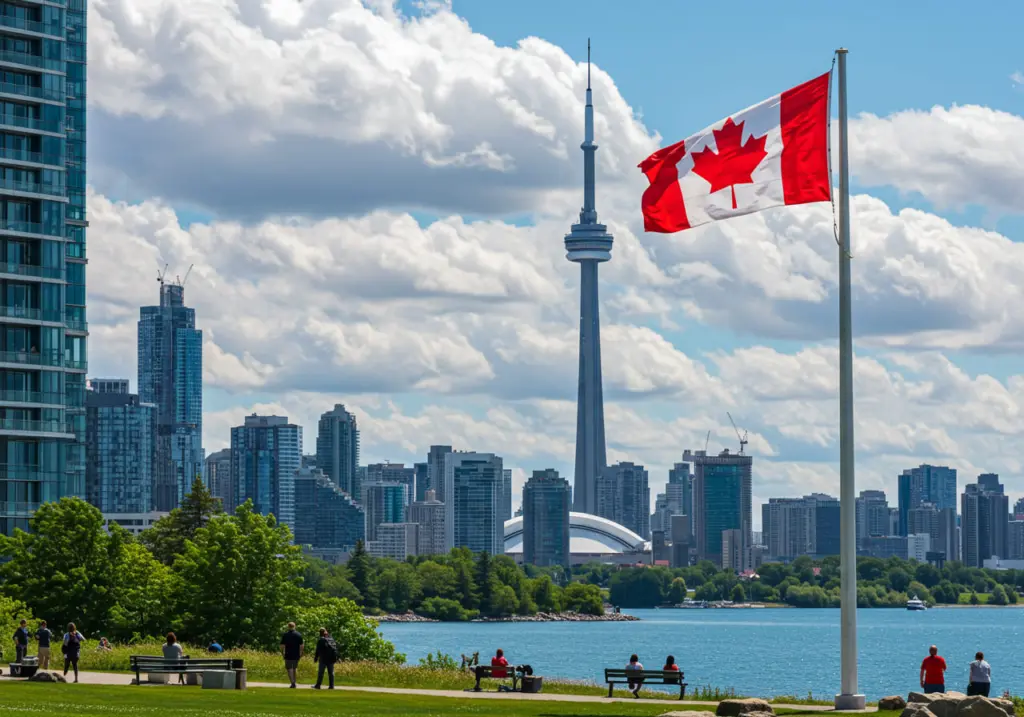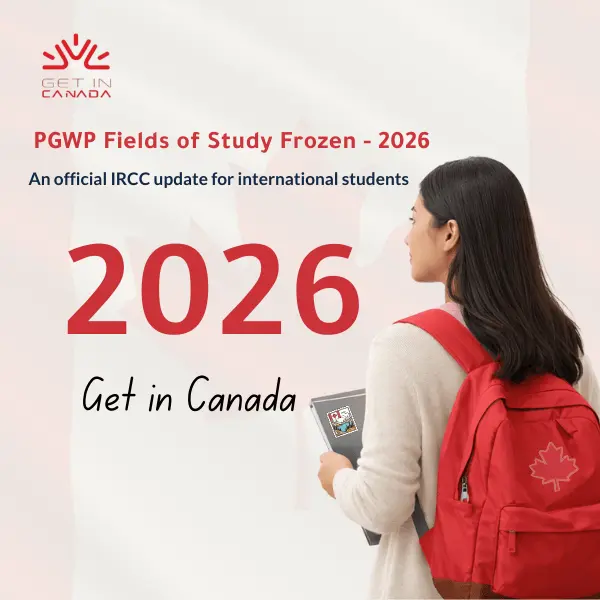Your Ultimate Travel Guide for Newcomers to Canada 2025
Welcome to Your New Chapter
Arriving in a new country is one of the most transformative experiences a person can have. It’s not just about relocating your belongings or learning a new address — it’s about mentally preparing for a new identity, routine, and rhythm of life. Whether you’re arriving from across the globe or a neighboring country, this Canada travel guide for newcomers is designed to support your journey from uncertainty to confidence. With detailed guidance and lesser-known tips, this article will walk you through everything that matters — including what no one tells you.

Why Choose Canada in 2025?
Canada remains one of the most desirable destinations for immigrants due to its strong economy, political stability, and welcoming immigration policies. In 2025, the Canadian government is set to admit over 485,000 new permanent residents, offering more pathways through the Express Entry system, family sponsorship, and provincial nominee programs. What truly sets Canada apart is its active support for integration: free language classes, multicultural communities, and settlement services exist in nearly every city. Choosing Canada isn’t just about job opportunities — it’s about choosing a life with balance, diversity, and access to quality public services.
For details on eligibility and immigration streams, explore the IRCC portal.
Best Time of Year to Arrive
The Canadian climate is varied and, for some, quite extreme. For newcomers, arriving during spring or early autumn is ideal. Between April and June, you’ll find mild weather, lower travel costs, and a more relaxed pace in housing and job markets. September to October is another strategic time — it’s back-to-school season, so family services and community programs are in full operation.
Arriving in the middle of winter, however, can be challenging. Heavy snowfall, icy roads, and freezing temperatures often surprise first-timers. It can also make everyday tasks like apartment hunting or commuting more difficult. If you must arrive in winter, ensure you have proper clothing and allow time to adjust to the cold.
Find out if you are eligible to get in Canada →
Documents You Must Prepare Before Traveling
Before boarding your flight, make sure your essential documents are organized and accessible. This includes your passport, visa, or Confirmation of Permanent Residence (COPR), along with printed copies of your travel itinerary and important contact numbers. You should also carry documents like your educational credentials (ECA report), previous employment letters, financial proof, and medical records.
Less obvious, but equally important: carry certified translations of documents in English or French, several passport-sized photos, and backup copies of your data stored digitally. If you’re bringing children, include their vaccination records and school transcripts.
Newcomer’s Document Checklist
- Valid passport and visa/COPR
- Proof of funds
- Educational credentials (ECA if applicable)
- Immunization records
- Driver’s license + International Driver’s Permit
- Prescription medications with notes from your doctor
- Reference letters (employment & tenancy)
Back up all documents on a secure cloud storage platform like Google Drive.
Choosing the Right Canadian City for Your Lifestyle
Canada’s geography and diversity mean each city offers a different experience. While Toronto and Vancouver are hubs of opportunity, they’re also costly. Calgary, Edmonton, and Ottawa offer better affordability with access to major industries. For families, mid-sized cities like Halifax, Saskatoon, and Kingston offer tight-knit communities, lower rent, and shorter commute times.
Don’t just follow the crowd. While cities like Toronto, Vancouver, and Montreal are popular, you might thrive in smaller, quieter, or more affordable places.
Compare cities using the Newcomer City Comparison Tool to evaluate cost of living, job prospects, and demographics.
Smart Travel Logistics
Flight booking is more than just choosing the cheapest ticket. Try to book your arrival for a weekday, ideally in the morning, to ensure government offices and settlement agencies are open if you need them. Airlines like Air Canada and Qatar Airways sometimes offer special luggage allowances for immigrants — take advantage of this.
- Avoid long layovers in countries requiring transit visas
- Carry CAD in small denominations
- Keep a set of warm clothes in your carry-on
Pack essentials in your carry-on: one warm outfit, important documents, medications, chargers, and toiletries. Remember that Canadian airports have free Wi-Fi, so you can update loved ones or call your ride. Also, prepare your Goods to Follow list if you’re shipping household items later — this is essential for duty-free clearance and must be declared using Form BSF186.
Where to Stay Your First Weeks
Your first home in Canada sets the tone for your transition. Many newcomers make the mistake of rushing into long-term leases. Instead, begin with short-term, flexible housing. Platforms like Airbnb, FurnishedFinder, or extended-stay hotels are ideal for stays of 2–8 weeks.
You can also search on Kijiji or join local Facebook groups that cater to immigrants — many offer furnished basement apartments or private rooms. If you’re sponsored or part of a government resettlement program, ask about temporary housing support.
For temporary stays, avoid overpriced options and try:
- Extended stay hotels (many have kitchenettes and discounts for 30+ day bookings)
- Temporary sublets through Facebook groups or Kijiji
- Newcomer shelters operated by settlement agencies
- Homestay programs for cultural immersion and local tips
Visit Short-Term Housing Options for Newcomers for verified listings and guides.
Stay Connected From Day One
Mobile service is essential. Purchase a local SIM card at the airport from low-cost carriers like Chatr, Public Mobile, or Lucky Mobile. Also:
- Enable mobile banking apps with two-factor authentication
- Download Transit App for local transport schedules
- Save emergency contacts in your favorites (911 for emergency, 211 for community services)
Find out if you are eligible to get in Canada →
Open a Bank Account and Build Credit
Opening a bank account is a top priority — and thankfully, most major banks offer newcomer-specific packages with no monthly fees, free international money transfers, and beginner credit cards. Banks like RBC, TD, and Scotiabank even allow you to open accounts online before you arrive.
Establishing credit is essential in Canada. Without it, renting an apartment, getting a car loan, or applying for a phone plan becomes difficult. Start with a secured credit card, use it responsibly, and pay your bills on time. In six months, your score will begin to grow.
Important tips:
- Apply for a secured credit card early to start building credit
- Ask whether the bank reports to TransUnion or Equifax
- Never rely solely on debit; credit history is crucial in Canada
Understand Your Healthcare Rights
Canada’s universal healthcare is excellent — but not immediate. Some provinces like British Columbia and Ontario enforce a 90-day waiting period before coverage starts. During this time, you must have private insurance.
Once eligible, register for a provincial health card (like OHIP in Ontario or MSP in BC). This grants you access to doctors, emergency rooms, and specialists. Dental and vision care are not covered for adults under most plans, so consider private insurance or community clinics.
Meanwhile:
- Buy temporary health insurance from Blue Cross or Manulife
- Always carry your insurance card
- Register with a family doctor immediately — waitlists can take months
- Keep receipts from walk-in clinics for reimbursement
Learn more about Healthcare Access for New Immigrants.
Book Your Consultation Session →
Use Public Transportation Like a Local
Canadian public transport varies by city but is generally reliable.
- Toronto (TTC), Vancouver (TransLink), and Montreal (STM) offer subway, bus, and tram options
- Smaller cities rely more on buses — some may not offer service on weekends
- Purchase a reloadable transit card immediately (Presto, Compass, Opus)
Cycling is also common — look for bike-share programs like BIXI or Bike Share Toronto.
Canadian Culture & Unwritten Rules
Understanding the social fabric of Canada will help you integrate faster. Canadians are known for politeness, but this comes with unspoken rules: don’t interrupt people, respect queues, and always say “please” and “thank you.” Tipping is customary — 15% at restaurants, even on takeout.
Cultural diversity is celebrated, but so is punctuality and professionalism. Never show up late to appointments or interviews. Engage in local festivals, volunteer work, or hobby groups. It’s not just a way to make friends — it’s how you build your network.
Cultural etiquette in Canada is subtle but important:
- Respect personal space and privacy
- Tipping is standard: 15% in restaurants, 10% in taxis
- Apologize often — it’s part of the culture
- Punctuality is highly valued (even in casual settings)
Participate in community events — they’re a fast-track to integration.
Stay Safe and Avoid Scams
While Canada is known for its safety and welcoming communities, newcomers can be vulnerable to fraud and scams, especially in their first few months. Common scams include fake calls from people claiming to be immigration officers, landlords asking for rent deposits via e-transfer before viewings, or fraudulent job offers that request personal banking details.
Important: No representative from Immigration, Refugees and Citizenship Canada (IRCC) will ever threaten you with arrest or ask for payment over the phone. If you receive a suspicious message, hang up and report it.
To protect yourself:
- Verify all government communications through the official IRCC website
- Learn about recent fraud tactics at the Canadian Anti-Fraud Centre
- Check rental listings and landlords through trusted platforms like Rentals.ca or PadMapper
- Do not share your SIN (Social Insurance Number) unless absolutely necessary — learn more at How to protect your SIN
Stay vigilant, trust your instincts, and consult your local settlement agency if in doubt. Safety begins with awareness.
First 10 Things to Do After Landing
- Get a Canadian SIM card
- Apply for your Social Insurance Number (SIN)
- Open a bank account and get a credit card
- Register for provincial health insurance
- Find temporary housing
- Look for permanent rental
- Get a transit card
- Schedule appointments with a doctor and dentist
- Register your kids in school
- Join a local newcomer support group
You’re Not Just Moving — You’re Thriving
This Canada travel guide for newcomers is more than a relocation checklist — it’s a comprehensive survival strategy for success. From planning your arrival to building financial stability and cultural belonging, your journey starts now. With a bit of foresight and the right information, your first year in Canada can be smooth, empowering, and full of meaningful experiences.











